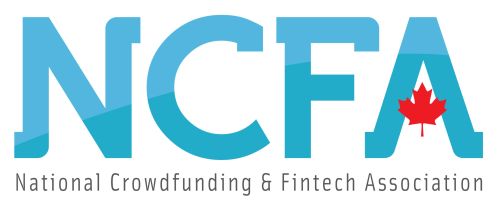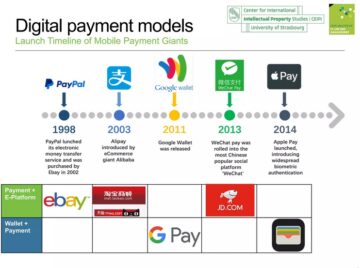Regulation | March 13, 2024

 Image: Pixabay/geralt
Image: Pixabay/geraltSEC’s New Climate Disclosure Rules Will Be A Game Changer for Investors
The Securities and Exchange Commission (SEC) has recently adopted new rules aimed at enhancing and standardizing climate-related disclosures by public companies and in public offerings (after receiving 24,000 comment letters). This move is a response to the growing demand from investors for more consistent, comparable, and reliable information regarding the financial impacts of climate-related risks on companies. Here’s a closer look at what these rules entail and why they matter.
- Companies are now required to disclose climate-related risks that significantly affect their business strategy, operations, or financial condition. Registrants must conduct a detailed impact analysis of the actual and potential material impacts of identified climate-related risks on their strategy, business model, and outlook. Companies must provide both quantitative and qualitative descriptions of expenditures and impacts resulting from activities to mitigate or adapt to material climate-related risks.
See: Cato Analysis: SECs Proposed Climate‐risk Disclosure
- Disclosures must include information on the board’s oversight of climate-related risks and management’s role in assessing and managing these risks.
- Companies are required to describe their processes for identifying, assessing, and managing material climate-related risks and how these processes are integrated into their overall risk management.
- Large accelerated filers and accelerated filers must disclose material Scope 1 and Scope 2 emissions, with assurance reports provided at specified levels.
- Notes to the financial statements must detail the capitalized costs, expenditures, and losses related to severe weather events, carbon offsets, and renewable energy credits, as well as the impact of these factors on financial estimates and assumptions.
Reaction
An article by Governance Intelligence called “Why the requirements are much weaker than planned” by Sehoon Kim, highlights the significant dilution of the initially proposed requirements, particularly the controversial decision to not mandate companies to report Scope 3 emissions, which pertain to emissions generated throughout a company’s supply chain and by the use of its products. This decision represents a substantial scaling back from the original proposal, focusing instead on requiring larger companies to disclose Scope 1 and Scope 2 emissions, related to their direct operations and energy use, only when such information is deemed materially relevant to investors.
See: Climate Inflation Discussion for a Sustainable Future
Scope 3 emission requirements sparked intense public debate and received a record number of comments, reflecting strong interest and significant opposition, including threats of legal action from several Republican state attorneys general. Much of the debate has centered on ‘cost-benefit concerns‘ whether the compliance costs for companies would outweigh the benefits of mandated disclosures to investors. The SEC’s own estimates suggested substantial compliance costs, potentially doubling for the average publicly listed company.
The rules are expected to disproportionately affect smaller companies, which are less likely to have voluntary disclosure practices in place, while larger corporations may see minimal impact.
Why It Matters
By requiring detailed disclosures, the SEC aims to provide investors with the tools they need to make informed decisions based on the climate-related risks and opportunities faced by companies.
See: Sustainability: A Must for Fintech Growth
These mandated disclosures promote transparency and accountability and encourage companies to more actively manage their climate-related risks, potentially leading to more sustainable business practices over the long term.

 The National Crowdfunding & Fintech Association (NCFA Canada) is a financial innovation ecosystem that provides education, market intelligence, industry stewardship, networking and funding opportunities and services to thousands of community members and works closely with industry, government, partners and affiliates to create a vibrant and innovative fintech and funding industry in Canada. Decentralized and distributed, NCFA is engaged with global stakeholders and helps incubate projects and investment in fintech, alternative finance, crowdfunding, peer-to-peer finance, payments, digital assets and tokens, artificial intelligence, blockchain, cryptocurrency, regtech, and insurtech sectors. Join Canada’s Fintech & Funding Community today FREE! Or become a contributing member and get perks. For more information, please visit: www.ncfacanada.org
The National Crowdfunding & Fintech Association (NCFA Canada) is a financial innovation ecosystem that provides education, market intelligence, industry stewardship, networking and funding opportunities and services to thousands of community members and works closely with industry, government, partners and affiliates to create a vibrant and innovative fintech and funding industry in Canada. Decentralized and distributed, NCFA is engaged with global stakeholders and helps incubate projects and investment in fintech, alternative finance, crowdfunding, peer-to-peer finance, payments, digital assets and tokens, artificial intelligence, blockchain, cryptocurrency, regtech, and insurtech sectors. Join Canada’s Fintech & Funding Community today FREE! Or become a contributing member and get perks. For more information, please visit: www.ncfacanada.org
Related Posts
- SEO Powered Content & PR Distribution. Get Amplified Today.
- PlatoData.Network Vertical Generative Ai. Empower Yourself. Access Here.
- PlatoAiStream. Web3 Intelligence. Knowledge Amplified. Access Here.
- PlatoESG. Carbon, CleanTech, Energy, Environment, Solar, Waste Management. Access Here.
- PlatoHealth. Biotech and Clinical Trials Intelligence. Access Here.
- Source: https://ncfacanada.org/sec-adopts-new-climate-disclosure-rules-excluding-scope-3/
- :has
- :is
- :not
- 000
- 1
- 13
- 150
- 2%
- 2018
- 300
- 62
- a
- accelerated
- accountability
- Action
- actively
- activities
- actual
- adapt
- affect
- affiliates
- After
- aimed
- aims
- alternative
- alternative finance
- analysis
- and
- ARE
- article
- artificial
- artificial intelligence
- AS
- Assessing
- Assets
- assumptions
- assurance
- At
- average
- back
- based
- BE
- become
- benefits
- blockchain
- board
- both
- business
- business model
- business practices
- business strategy
- by
- cache
- called
- Canada
- capitalized
- carbon
- Carbon Offsets
- centered
- chain
- Changer
- Climate
- closely
- closer
- comment
- comments
- commission
- community
- Companies
- company
- comparable
- compliance
- condition
- Conduct
- consistent
- Corporations
- Costs
- create
- Crowdfunding
- cryptocurrency
- debate
- decentralized
- decision
- decisions
- deemed
- Demand
- describe
- detail
- detailed
- digital
- Digital Assets
- dilution
- direct
- Disclose
- disclosure
- Disclosures
- discussion
- disproportionately
- distributed
- doubling
- ecosystem
- Education
- emission
- Emissions
- encourage
- energy
- energy use
- engaged
- enhancing
- estimates
- Ether (ETH)
- events
- exchange
- Exchange Commission
- excluding
- expected
- faced
- factors
- finance
- financial
- Financial Condition
- financial innovation
- fintech
- focusing
- For
- from
- funding
- funding opportunities
- future
- game
- game-changer
- General
- generated
- get
- Global
- governance
- Government
- Growing
- Growth
- Have
- helps
- here
- High
- highlights
- How
- http
- HTTPS
- identified
- identifying
- image
- Impact
- Impacts
- in
- include
- Including
- industry
- inflation
- information
- informed
- initially
- Innovation
- innovative
- instead
- Insurtech
- integrated
- Intelligence
- intense
- interest
- into
- investment
- Investors
- IT
- ITS
- Jan
- jpg
- Kim
- larger
- leading
- Legal
- Legal Action
- less
- levels
- likely
- Listed
- Long
- Look
- losses
- make
- manage
- management
- managing
- mandate
- March
- March 13
- Market
- material
- materially
- Matter
- max-width
- May..
- member
- Members
- minimal
- Mitigate
- model
- more
- move
- much
- must
- Need
- networking
- New
- now
- number
- of
- offsets
- on
- only
- Operations
- opportunities
- opposition
- or
- original
- Outlook
- outweigh
- over
- overall
- own
- particularly
- partners
- payments
- peer to peer
- perks
- Place
- plato
- Plato Data Intelligence
- PlatoData
- please
- potential
- potentially
- practices
- processes
- projects
- promote
- proposal
- proposed
- provide
- provided
- provides
- public
- public companies
- publicly
- publicly listed
- qualitative
- quantitative
- received
- receiving
- recently
- record
- reflecting
- regarding
- registrants
- Regtech
- related
- relevant
- reliable
- Renewable
- renewable energy
- report
- Reports
- represents
- Republican
- required
- Requirements
- response
- resulting
- Risk
- risk management
- risks
- Role
- rules
- s
- scaling
- scope
- SEC
- Sectors
- Securities
- Securities and Exchange Commission
- see
- Services
- several
- severe
- significant
- significantly
- smaller
- sparked
- specified
- stakeholders
- standardizing
- State
- statements
- Stewardship
- Strategy
- strong
- substantial
- such
- supply
- supply chain
- Sustainability
- sustainable
- sustainable future
- term
- than
- that
- The
- their
- These
- they
- this
- thousands
- threats
- throughout
- to
- today
- Tokens
- tools
- Transparency
- use
- vibrant
- Visit
- voluntary
- weaker
- Weather
- WELL
- What
- when
- whether
- which
- while
- why
- will
- with
- works
- would
- zephyrnet












